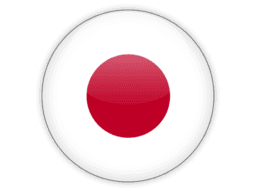
Regions of Japan
Explore 47 regions
Cities of Japan
Discover 50 cities across 22 regions
Chiba(5)
Hokkaido(1)
Hyōgo(4)
Ibaraki(1)
Ishikawa(1)
Kagoshima(1)
Kanagawa(5)
Kumamoto(2)
Kyoto(1)
Miyagi(1)
Niigata(1)
Oita(1)
Osaka(3)
Tochigi(1)
Japan is an island country located in East Asia, bordered by the Pacific Ocean to the east, the Sea of Japan to the west, and the Sea of Okhotsk to the north. It is composed of four main islands, Honshu, Hokkaido, Kyushu, and Shikoku, as well as many smaller islands. The capital and largest city is Tokyo, with a population of over 13 million people.
Japan has a rich and ancient culture, with a long history dating back thousands of years. It is known for its traditional art forms such as calligraphy, tea ceremony, flower arrangement, and kimono making, as well as its popular culture, including anime, manga, and video games. Japan is also famous for its food, including sushi, ramen, udon, and tempura.
In terms of geography, Japan is home to many mountains, including the iconic Mount Fuji, and has a diverse climate with four distinct seasons. The country experiences frequent earthquakes and tsunamis due to its location on the Pacific Ring of Fire, and has developed advanced technology and infrastructure to cope with these natural disasters.
Japan is a modern and developed country, with a strong economy and a high standard of living. It is known for its innovative technology and efficient public transportation, including the famous shinkansen bullet train. It is also a popular tourist destination, attracting millions of visitors each year to its cities, temples, gardens, and scenic natural areas.
Telephone Code
81
Local Emergency Phone
Ambulance: 119; Fire: 119; Police: 110
Vaccinations
See WHO recommendations
Climate
Varies from tropical in south to cool temperate in north
Currency (Code)
Yen (JPY)
Electricity/Voltage/Plug Type(s)
100 V / 50 Hz / plug types(s): A, B
Major Languages
Japanese
Major Religions
Shintoism 69%, Buddhism 66.7%, Christianity 1.5%, other 6.2%; note: many people practice both Shintoism and Buddhism
Potable Water
Yes
International Driving Permit
required
Road Driving Side
Left
Tourist Destinations
Tokyo (includes Imperial Palace, Skytree, Mount Fuji, Disneyland); Hiroshima Peace Memorial Park; Historic Kyoto; Island Shrine of Itsukushima; Historic Nara; Himeji Castle; Nagasaki; Okinawa
Major Sports
Sumo wrestling, karate, judo
Cultural Practices
Shaking hands in Japan is less widespread than in other countries. Bowing is much more common.
Tipping Guidelines
Tipping is not expected by the majority of service workers. This includes restaurant servers, hotel employees, and cab drivers. Some even regard tipping as rude or degrading. Staff connected with tourism, such as tour guides, may be grateful for tips.
Souvenirs
Silk kimonos, designer fashion and electronics, beauty products, bento boxes, art supplies, bamboo and paper wagasa umbrellas, printed tenugui cloth items, hand fans, tanuki statues; ceremonially dressed dolls, kites, and folk toys; maneki neko good fortune cat items
Traditional Cuisine
Sushi — small rolls of vinegar-flavored cold cooked rice typically served with a garnish of raw fish; Japanese curry — meat and vegetables in a simple curry sauce with Japanese spices and usually served on top of plain steamed rice
Geography
Area
total: 377,915 sq km
land: 364,485 sq km
water: 13,430 sq km
Climate
varies from tropical in south to cool temperate in north
Natural resources
negligible mineral resources, fish; note - with virtually no natural energy resources, Japan is almost totally dependent on foreign, imported sources of energy
People and Society
Population
123,719,238 (2023 est.)
Ethnic groups
Japanese 97.9%, Chinese 0.6%, Korean 0.4%, other 1.1% (includes Vietnamese, Filipino, and Brazilian) (2017 est.)
Languages
Japanese
Religions
Shintoism 70.5%, Buddhism 67.2%, Christianity 1.5%, other 5.9% (2019 est.)
Population growth rate
-0.41% (2023 est.)
Government
Government type
parliamentary constitutional monarchy
Capital
name: Tokyo
Economy
Economic overview
third-largest, trade-oriented, and diversified economy; highly indebted country; slow wage growth and declining labor force; still heavily hydrocarbon-reliant; central bank keeping low interest rates amid modest inflation; increased military spending; stagnant tourism sector
Real GDP (purchasing power parity)
$5.126 trillion (2021 est.)
Real GDP per capita
$40,800 (2021 est.)
Agricultural products
rice, milk, sugar beet, vegetables, eggs, poultry, potatoes, cabbages, onions, pork
Industries
among world's largest and most technologically advanced producers of motor vehicles, electronic equipment, machine tools, steel and nonferrous metals, ships, chemicals, textiles, processed foods
Exports
$919.158 billion (2021 est.)
Exports - partners
China 21%, United States 18%, South Korea 7%, Taiwan 7%, Hong Kong 4% (2020)
Exports - commodities
cars and vehicle parts, integrated circuits, personal appliances, photo equipment, ships (2020)
Imports
$941.671 billion (2021 est.)
Imports - partners
China 26%, United States 11%, Australia 5%, South Korea 4%, Taiwan 4% (2020)
Imports - commodities
crude oil, natural gas, integrated circuits, broadcasting equipment, computers (2020)
International Airports in Japan
Discover 30 major airports serving Japan
Mark Japan as Visited
Add Japan to your personal travel map and track your journey around the world. Share your adventures and see your progress grow!